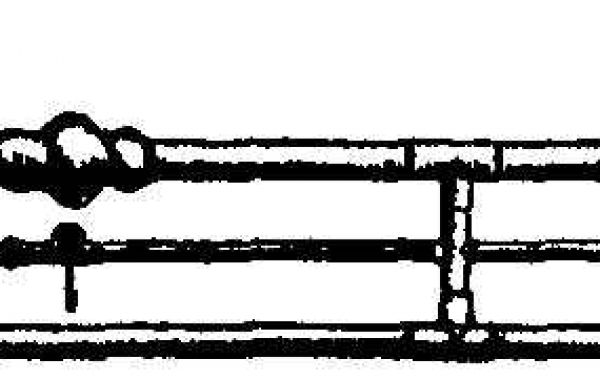February is considered the month of love. Love is a misunderstood word. Paul tells us this about love in 1 Corinthians 13:4-8, “Love is patient, love is kind. It does not envy, it does not boast, it is not proud. It does not dishonor others, it is not self-seeking, it is not easily angered, it keeps no record of wrongs. Love does not delight in evil but rejoices with the truth. It always protects, always trusts, always hopes, always perseveres. Love never fails.” Examine yourself against this standard. How do you rate? God is love and 1 John 4:7-8 makes it quite clear what is required of us, “Beloved, let us love one another, for love is from God, and whoever loves has been born of God and knows God. Anyone who does not love does not know God, because God is love.” Verses 16-17 goes on to say, “So we have come to know and to believe the love that God has for us. God is love, and whoever abides in love abides in God, and God abides in him. By this is love perfected with us, so that we may have confidence for the day of judgment, because as He is so also are we in this world.” Verses 20-21 speaks volumes, “If anyone says, “I love God,” and hates his brother, he is a liar; for he who does not love his brother whom he has seen cannot love God whom he has not seen. And this commandment we have from Him: whoever loves God must also love his brother.” WOW! Love goes beyond what we think of love.
Today consider asking God to increase your love, I am!
Purim …A Love Story
On February 26-27 is the Feast of Purim.
When we think of Purim we generally think of Queen Esther and how she saved her people. And maybe some people don’t even know that Purim is a celebration of just that. So let’s quickly take a walk through the Book of Esther, so stay with me as I lay out the foundation to this story because there is a moral to the story. Esther, whose Jewish name was Hadassah, was a young girl who lived during the time of the Persian Empire, specifically during the reign of King Ahasuerus also known as Xerxes I, which puts us around the time of 486-465BC. Esther had an older cousin who looked after her well being and his name was Mordecai. He worked at the palace of the king. Xerxes was having a banquet one night, well, let’s say it was a long night like seven days long. You know when the guys get together they forget to go home. On the seventh day the king commanded his eunuchs to go and get the queen, Queen Vashti, because she was beautiful, but she refused to come into the king’s presence. Queen Vashti was not going to be on display for the king’s friends, if you know what I mean. The king was outraged and to save face, he banished her. Now the king had to find a replacement for Vashti, so the king sent out his attendants to find all the beautiful available girls and to bring them into his harem. So Esther was one of those girls. Esther found favor with Hegai the eunuch in charge of the harem and he gave her the best of everything so that she would please the king. So yes, Esther found favor and became queen. On the advice of her cousin Esther did not reveal to the king that she was Jewish. But this is only the beginning of the story.
One day Mordecai heard of a plot to kill the king and he told Esther and Esther told the king. The king was grateful and wrote Mordecai’s name in the Book of Chronicles. Now I just want to note that Mordecai and all the Jews at that time were exiles going back to Nebuchadnezzer of Babylon, so there was no reason for Mordecai to be loyal to the king. Haman, the king’s right hand man, hated the Jews and especially Mordecai because he would not bow to Haman.
Haman convinces the king to destroy all the Jews in the land. Mordecai learns of Haman’s plot and he tears his clothes and puts on sackcloth and ashes and enters the city weeping. All the people join with Mordecai in fasting and weeping before the Lord. Esther learns the condition of her cousin and she sends her maiden with clothes to give to Mordecai. She calls her personal attendant Hathach to go and find out what it’s all about. Mordecai tells him everything and gives him a message for Esther… “Go into the king to implore his favor and to plead with him for her people.” Well Esther would have none of it, for to just go and enter into the king’s presence without being summoned by the king would mean death.
Mordecai becomes Esther’s conscience and tells her… “Do not imagine that you being in the king’s palace can escape anymore than all the Jews.” “For if you remain silent at this time, relief and deliverance will arise for the Jews from another place and you and your father’s house will perish. And who knows whether you have not attained royalty for such a time as this?”
WOW! God has a plan for each one of our lives and for us to accomplish God’s will in our lives we may have to be at a certain place, at a certain time, doing a certain work to accomplish it. I guess we shouldn’t question the whys in our lives, for God knows why. Esther no longer argues with Mordecai, she simply tells him to gather the Jewish people and begin to fast for three days. How important is fasting when fighting a battle. Fasting and praying are essential tools when it comes to victory. Esther realizing her calling in life, tells Mordecai, “ I will go to the king, which is not according to the law; and if I perish, I perish”
At that moment that Esther realizes her calling and purpose in life, she receives such a conviction, that she was willing to die for it. How about us? Yeshua tells us in Matthew 16:24-26, “Then Yeshua told his disciples, ‘If anyone would come after me, let him deny himself and take up his cross and follow me. For whoever would save his life will lose it, but whoever loses his life for my sake will find it. For what will it profit a man if he gains the whole world and forfeits his soul? Or what shall a man give in return for his soul?’”
Do we have such a conviction that tells us, if I perish, I perish? 1 John 3:16 also tells us this, “By this we know love, that he laid down his life for us, and we ought to lay down our lives for the brothers.” Esther was not only concerned about her life but the life of her people. Esther does go into the king unannounced and guess what? He puts out his scepter toward her and tells her to come. Why? Was it God? Was it an answer to prayer? The answer is “absolutely yes” to both, but I think there was one other factor. I believe that the king truly loved Esther. When the king hears what Esther has to say, and that she herself is Jewish, he hangs Haman and his sons. He could have just reprimanded him or demoted him but the king hangs him and his sons. I think the king loved Esther so much that he could not even begin to think that she or her people would have been put to death by Haman’s scheme,(remember Mordecai saved his life). The devil hates us. He has a plan to destroy us as 1 Peter 5:8 tells us. “Be of sober spirit, be on the alert. Your adversary, the devil, prowls around like a roaring lion, seeking someone to devour.” But God has a plan also as John 3:16 tells us, “For God so loved the world, that He gave His only Son, so that everyone who believes in Him will not perish, but have eternal life.
The Jewish people lived and they celebrated. They also made it a holiday, a day to remember that God used Esther to save His people. Every year on the fourteenth and fifteenth day of the month of Adar the people are to celebrate Purim, which means “lot” because Haman had casted a lot to destroy them. One day our God will also have a great celebration of joy, a feast as Revelation 19:6-9 tells us. “Then I heard what seemed to be the voice of a great multitude, like the roar of many waters and like the sound of mighty peals of thunder, crying out, “Hallelujah! For the Lord our God the Almighty reigns. Let us rejoice and exult and give him the glory, for the marriage of the Lamb has come, and his Bride has made herself ready; it was granted her to clothe herself with fine linen, bright and pure”— for the fine linen is the righteous deeds of the saints. And the angel said to me, “Write this: Blessed are those who are invited to the marriage supper of the Lamb.” And He said to me, “These are the true words of God.”
God truly loves us and He also invites us to come into His presence, not with fear but with joy as Psalm 95:2 says, “Let us come into his presence with thanksgiving;
let us make a joyful noise to him with songs of praise!”
Happy Purim Everyone!
Excerpt from The Parables by Brad H. Young , Who is My Neighbor?
Luke 10:25-37 “On one occasion an expert in the law stood up to test Yeshua. “Teacher,” he asked, “what must I do to inherit eternal life?” “What is written in the Law?” he replied. “How do you read it?” He answered, “‘Love the Lord your God with all your heart and with all your soul and with all your strength and with all your mind’; and, ‘Love your neighbor as yourself.’” “You have answered correctly,”Yeshua replied. “Do this and you will live.” But he wanted to justify himself, so he asked Yeshua, “And who is my neighbor?” In reply Jesus said: “A man was going down from Jerusalem to Jericho, when he was attacked by robbers. They stripped him of his clothes, beat him and went away, leaving him half dead. A priest happened to be going down the same road, and when he saw the man, he passed by on the other side. So too, a Levite, when he came to the place and saw him, passed by on the other side. But a Samaritan, as he traveled, came where the man was; and when he saw him, he took pity on him. He went to him and bandaged his wounds, pouring on oil and wine. Then he put the man on his own donkey, brought him to an inn and took care of him. The next day he took out two denarii and gave them to the innkeeper. ‘Look after him,’ he said, ‘and when I return, I will reimburse you for any extra expense you may have.’ “Which of these three do you think was a neighbor to the man who fell into the hands of robbers?” The expert in the law replied, “The one who had mercy on him.” Yeshua told him, “Go and do likewise.”
The answer to this question “Who is my neighbor?” is not as simple as one thinks at the first reading of the parable. Many would answer, “Any human being in need,” but the Torah scholar, because of his great learning, understands the deeper level of the parable. He did not respond by saying, “The insured man, “any person in need,” or even the identity of the character in the parable, “the “Samaritan.” Instead he answered with profound wisdom, “the one who showed mercy.” Of course Yeshua gave him the three options, and this emphasized the point of reciprocity. Each person must understand the needs of his neighbor in order to become a neighbor. He no longer defined the Samaritan only as a member of another religious and cultural community. He did not call him “the Samaritan” but defined him by his actions. He is the one who showed compassion. In order to understand or define the meaning of neighbor (rea), one must first become a neighbor. One discovers a strong reciprocity in the sense that to define “Neighbor,” one must first become a neighbor. The Torah scholar did not categorize the Samaritan according to his cultural and religious community. He saw him for what he did. He realized from the story of Yeshua that every human being, whether friend or enemy, is of inestimable value and must be esteemed according to the Biblical commandment “you shall love your neighbor as yourself.” Yeshua made His point clear enough for the Torah scholar; one should interpret the verse in the broadest sense: “You shall love even your enemy as yourself,” (for the Jews and the Samaritans were at odds with each other).
Hamantaschen Cookies for Purim
Dough: 3 cups of flour
2 tsp of baking powder
½ cup of sugar
3 eggs-beaten
1 1/2 sticks of butter or margarine softened
1 tsp of vanilla
Blend dry ingredients and set aside. Mix butter, sugar and then add eggs and vanilla. Gradually add the dry ingredients and refrigerate for one hour. While chilling, make the filling.
Filling: chocolate filling is the most popular but you can use any filling you prefer.
Chocolate filling: 1 cup semisweet chocolate chips
2 Tbsps butter or margarine
1 egg-beaten
1/3 cup sugar
Melt chocolate chips and butter over low heat. Remove from heat and cool. Add egg and vanilla and sugar and mix well.
Roll out the dough when ready on a floured surface and cut in circles of desired size. Place a small amount of filling ( 1/2-1 tspn) in the center of each circle. Fold ends of the circle into three by pinching edges tightly (to form a three ended hat), so the dough doesn’t open while baking, or your cookie will be flat.
Bake: 350 degrees for 15-20 minutes or until golden brown on the edges, depending on the size of your cookies…cool and sprinkle with powdered sugar.
Hebrew Corner
This month letter is ט Tet
Tet sounds like a T. It is the ninth letter of the Hebrew alphabet and numerically is nine. Tet looks like a coiled snake and it reveals good and evil. The letter first appears in Genesis 1:4, and God saw the light, that it was good. But even though God saw that the light was good, He still divided it from the darkness.
Isaiah 45:7 tells us, “I form (yotzer), the light, and create darkness, (choshekh); I make peace,(shalom) and create evil, calamity (ra), I the Lord do all these things.” This is TET! So let’s go back a few letters and see the picture that it creates.
When a man (vav) is bowed down before the crowd man (Zayin), taking upon himself his yoke (chet), then his soul is subject to the discipline of the Lord, and the ninefold fruit of the Spirit will grow in his life–Galatians 5:22-23. This man will die to himself and all that is outside of the yoke of Messiah —Luke 9:23.
If the soul refuses to bow down and instead rebels, by choosing to live for himself, the inner life will take on the characteristics of the serpent (nachash), Satan.
“Tet” is represented by our decision to give our lives to Messiah and be yoked together with Him, surrender our lives as living sacrifices or rebel and live in selfish pride that marks the devil.
Deuteronomy 30:19, “This day I call the heavens and the earth as witnesses against you that I have set before you life and death, blessings and curses. Now choose life, so that you and your children may live.”
Now I Live
Lord, I was dead, but now I live.
Sin kept me away from You, but now You have forgiven me and You have given me life. I am a new creation and my soul rejoices. Your everlasting love touches the depths of my inner being. I give glory and praise to You for now I live.
Sandiegram /The Pathway of My Life
Copyright 2010








